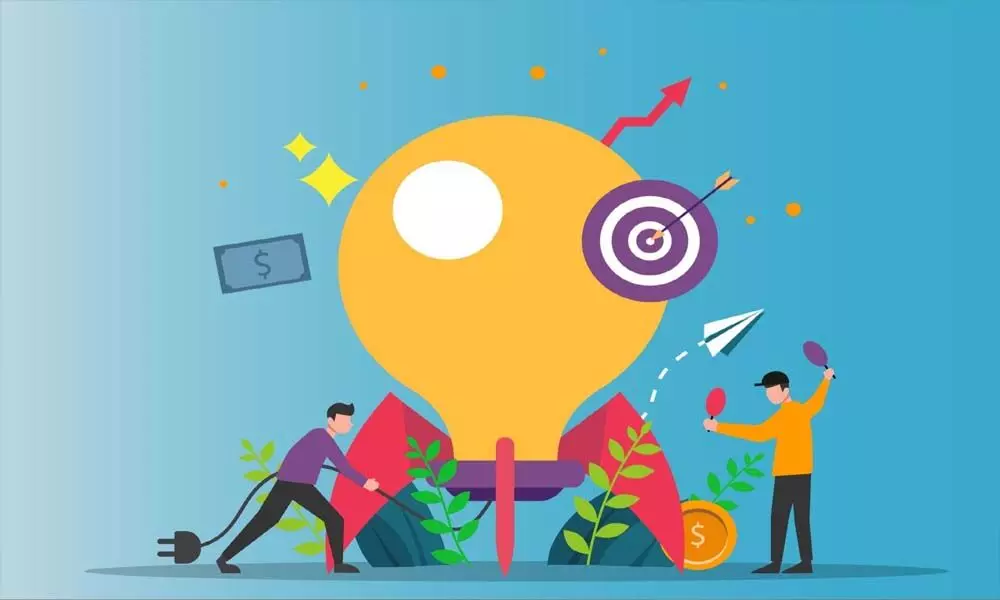How social entrepreneurs protect people during Covid crisis?
They reached those, who the market and governments were unable to account for; Deep within Covid crisis, they came up with unparalleled paradigms of resistance
image for illustrative purpose

A simple definition of social entrepreneurship would describe it as the confluence of commerce and social well-being, an endeavour to develop solutions to existing social, environmental and cultural issues, while participating in the economy. If Mohammed Yunus, the Bangladeshi economist and social entrepreneur who won the Nobel Peace Prize for founding the Grameen Bank and ushering in revolutionary concepts of microfinance, was the go-to example for such ventures, the co-Covid era has demonstrated myriad domains where social entrepreneurship has provided much need relief. This development is a worthy viewpoint to assess the future of social entrepreneurship, the vast potentials it holds and the transformational benefits it can accrue to the world.
At a most fundamental level, social entrepreneurs step in where markets and governments are unable to provide instant relief to populations in need. From guaranteeing access to credible information, services and care for the most vulnerable, to launching substantial initiatives to support individuals and communities during their collective and individual troubles, the work of social entrepreneurs became all the more critical and irreplaceable during the Covid-19 pandemic, as they reached those who the market and governments were unable to account for. Because of their flexibility as businesses and their commitment to a social purpose, they have been able to be active and practical on the ground and have revitalized the security people could expect and need in dire times. From the immediate impact of the viral spread to the tertiary, cascading repercussions on employment, mental health, education and other domains, social innovation has shown the way for bouncing back.
Deep within the Covid crisis, entrepreneurs came up with unparalleled paradigms of resistance. The Covid Response Alliance for Social Entrepreneurs was launched in April 2020 by 60 leading social-sector organizations aiming to help mobilize support and raise awareness of the vital role these entrepreneurs play in tackling the crisis and beyond. In various capacities, the members of the Alliance support over 50,000 social entrepreneurs across the world. The entrepreneurs, in turn, have a direct or indirect impact on the lives of nearly 1 billion people according to their own estimates, providing access to employment, food, affordable energy and other critical services.
Amazon Conservation Team was of great benefit to indigenous communities in the Amazon as they translated public health information into native languages and shared it through radio and WhatsApp, channels that they knew indigenous communities utilized. Citizen Schools, a social enterprise is tackling the pandemic's adverse impact on the education of young adults, with services such one-on-one and small group tutoring in multiple subjects and Career Connection Conversations that allow students to sharpen their curiosity and build a social network.
In India alone, social entrepreneurs have done exemplary work in the precarious times of the coronavirus predicament. As WeForum reports Goonj, an NGO based in New Delhi distributed more than 8,800 tons of rations and other essential items, provided more than 362,000 meals, sourced 2,25,000 kgs of vegetables from farmers, reached out to more than 380,000 families and produced more than 800,000 face masks and more than 12,00,000 cloth sanitary pads. The Self-Employed Women's Association (SEWA), an organization that provides support to self-employed women, on behalf of its 1.7 million women workers in 18 states of India, urged the government to declare income support to all the families of the informal economy workers to tide over this crisis, issue a circular to all the states to declare a compensatory package of Rs 5,000 per month to all registered workers, provide a free public distribution system for ration supply as long as the crisis lasts, and offer six months amortization on repayment of all loans. Glocal Healthcare launched a free telemedicine consultation for Covid-19 screenings. These efforts exemplify what the new-age social innovation can accomplish.
If the Co-Covid world has invigorated, these new ways of going about social enterprise, the post-Covid reality to be anticipated brims with promise. Social entrepreneurs are going to be crucial in mobilizing resources in concrete ways to alter our everyday socioeconomic existences, for the primacy of the social good. Promoting favourable social change is suitable to these endeavours because they are not tied up in the rigidities of the state and the market, but while making necessary profits, are motivated to make the world a better place. This takes us to new, pragmatic ideas of leadership and transformation which serve immediate impact to populations in need and provide new hopes to humankind.
To quote Napoleon Bonaparte, "A leader is a dealer in hope." This is true of social innovators who have built their efficacy through timely intervention more than the rhetorical promise of it. With a focus on solutions, social entrepreneurs are the committed and realistic leaders the world will see rising and taking us to better, hopeful, secure futures.
(The author is Founder, Upsurge Global, and Senior Advisor, Telangana State Innovation Council)

